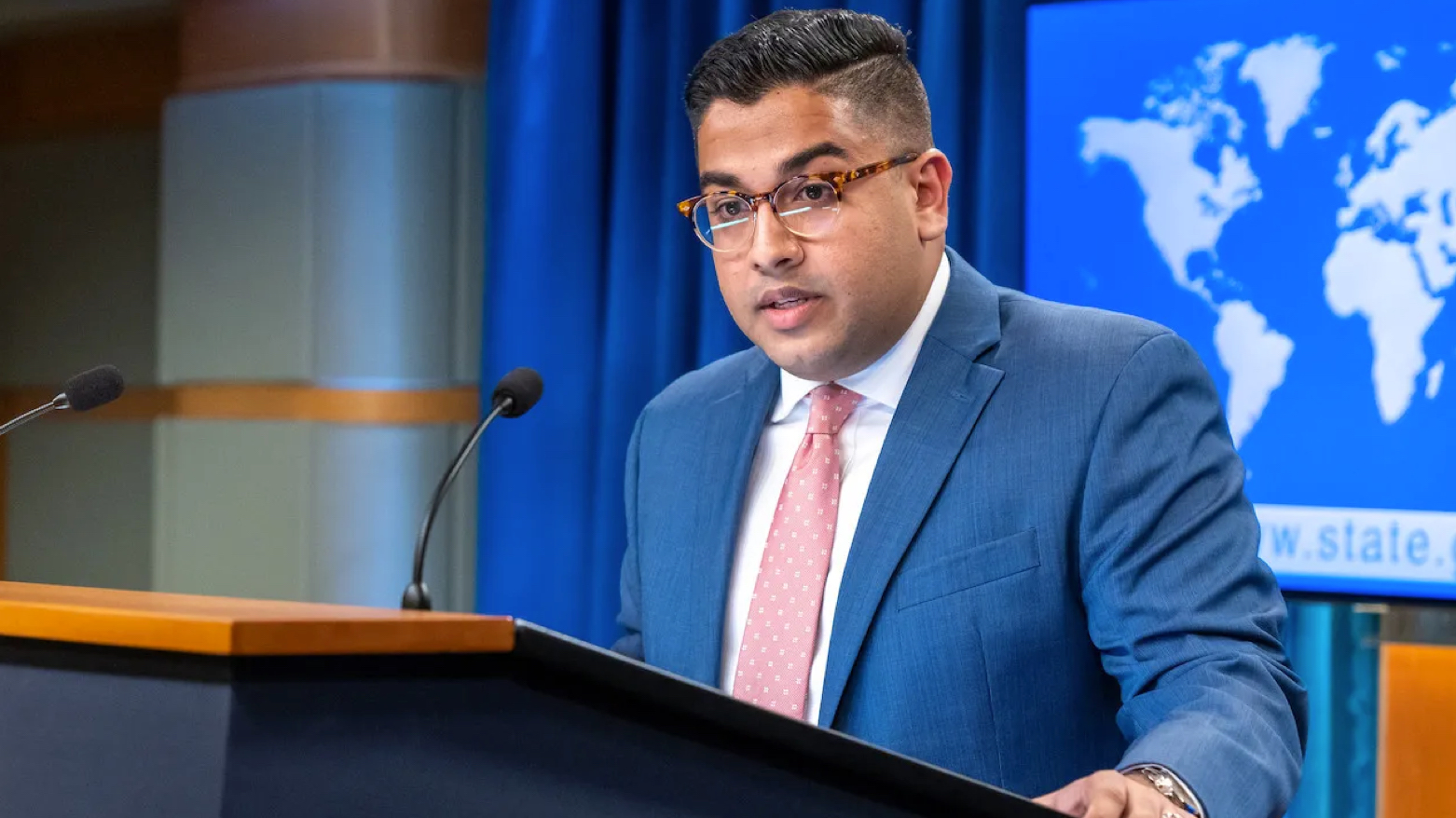U.S. Calls for De-Escalation in Northeast Syria, but won’t Criticize Turkey
Patel trod a cautious middle ground, urging deescalation, while being careful not to criticize Turkey.

WASHINGTON DC, United States (Kurdistan 24) – On Wednesday, Turkish Foreign Minister Hakan Fidan charged that the two men who carried out the suicide bombing on Sunday in Ankara that left two policemen slightly injured had come from Syria and they had received training there.
Fidan threatened a “very precise” response, as he stated, “All infrastructure, superstructure, and energy facilities that belong to the PKK and the YPG, especially in Iraq and Syria, are legitimate targets of our security forces, armed forces, and intelligence units from now on.”
Iraq’s Defense Minister, Thabet al-Abbasi, arrived in Ankara on Wednesday and is to meet with his Turkish counterpart on Thursday.
Washington has repeatedly called on Turkey to coordinate any counter-terrorism operations in Northern Iraq, including the Kurdistan Region, with Baghdad, and that appears to be the purpose of Abbasi’s visit to Ankara.
Read More: U.S. Calls on Turkey to Coordinate Counter-Terrorism Strikes with Baghdad
In regards to Turkish threats to northeast Syria, Mazloum Abdi, head of the Kurdish-led Syrian Democratic Forces (SDF), America’s main partner in the fight against ISIS there, tweeted a denial of Fidan’s charge.
The “perpetrators haven't passed through our region as Turkish officials claim,” Abdi said, charging, “Turkey is looking for pretexts to legitimize its ongoing attacks on our region and to launch a new military aggression.”
Asked later on Wednesday about that charge, Deputy State Department Spokesperson Vedant Patel trod a cautious middle ground, urging de-escalation, while being careful not to criticize Turkey.
Turkey is playing a central role in the Ukraine conflict, which has become America’s top national security concern. Ankara is central to the negotiation of arrangements for the export of Ukrainian grain, while Washington still seeks Ankara’s agreement to allow Sweden to join NATO.
Thus, Patel began his response to the question with a pro-Turkish statement. As he affirmed, “We recognize the legitimate security threat that the PKK poses to Turkey.”
On the other hand, Patel continued, “The U.S. also remains concerned about the military escalation in northern Syria.”
“In particular,” he said, “we’re concerned about the impact on civilian populations,” as well as the harm such escalation could cause “ongoing” efforts to defeat ISIS.
“We continue to advocate for de-escalation and the maintenance of cease-fires as a key element of our policy,” Patel stated, while “we continue to coordinate with Turkey” and urge that “they should coordinate [their] actions with Iraq in a way that supports and respects Iraqi sovereignty.”
Patel’s language was, notably, significantly softer than that used by the State Department some ten months ago, after a bombing in Istanbul. Ankara blamed the PKK for that attack, although there were significant indications that ISIS was responsible.
At that point, in December 2022, the State Department spokesperson said, “We strongly oppose military action, including a potential land incursion that would further destabilize the lives of communities in Syria and risk, importantly, the global coalition’s hard-earned progress against ISIS,” as he called on “all parties” to “immediately de-escalate.”
Read More: US warns Turkey against cross-border attacks, as it resumes normal patrols in northeast Syria
On Monday, the day after the terrorist attack in Ankara, State Department Spokesperson Matthew Miller was asked by a Turkish journalist about an agreement said to have been made some four years ago between the U.S. and Turkey which stipulated that the YPG should move 30 kilometers (19 miles) south of the Turkish border.
“Do you still recognize that understanding,” the journalist asked, “or do you say that was the previous administration?”
At that point, Miller did not have an answer, but a State Department spokesperson later told Kurdistan 24, “No U.S. official has made any such new offers related to the Turkey-Syria border.”